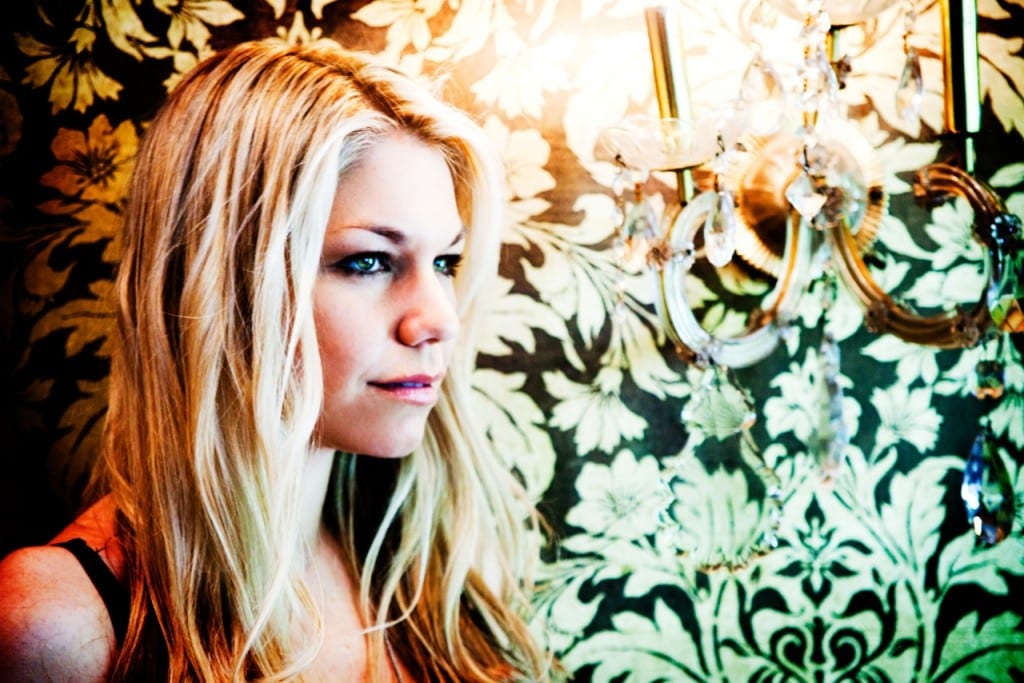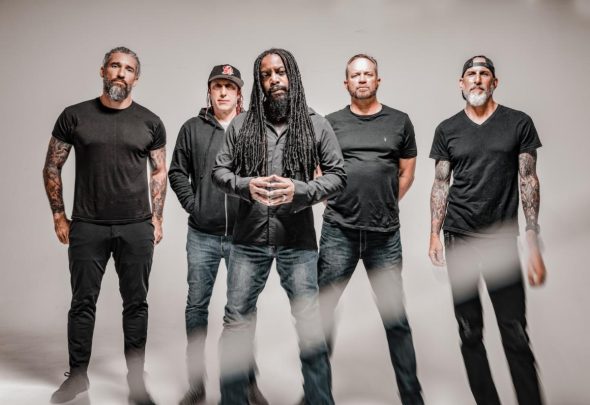How to market your music yourself
Fans of movies and television may be familiar with the sound of Kari Kimmel’s voice. The songwriter and recording artist has contributed more than 250 songs for stories on the big and small screen including “Burn Notice,” “Grey’s Anatomy,” “House,” “Private Practice,” “The Hills,” “The Office” and “The Walking Dead.” Kimmel has also been named one of the top 50 artists on VH1.
Kari Kimmel’s story — her journey — is one of extreme hard work and intense passion. She’s originally from South Florida. She moved to Los Angeles about 10 years ago to pursue her love of music. She plays multiple instruments, produces most of her own songs, and she handles her own marketing. That’s right, she handles her own marketing.
A while back, I had the opportunity to interview Kimmel on a radio show. For you up-and-coming musicians, Kimmel has a lot of good insights and lessons learned about marketing and developing your music as a business.
Steve Kayser: Let’s go back to 10 years ago. You left Florida, and you went to LA, to Hollywood with the big dream. What did you find when you got there?
 Kari Kimmel: When I moved to LA, I was writing and just trying to figure out exactly what I wanted to do, and then soon after that, I signed a deal with Virgin. I worked on an album, and we were getting ready to mix it when the president who signed me was fired … and basically all the artists that he had been working on were gone, including me.
Kari Kimmel: When I moved to LA, I was writing and just trying to figure out exactly what I wanted to do, and then soon after that, I signed a deal with Virgin. I worked on an album, and we were getting ready to mix it when the president who signed me was fired … and basically all the artists that he had been working on were gone, including me.
It wound up being a blessing in disguise, but at the time it was a bummer. I soon realized that I could do music for film and TV and just do my own music. I started doing more and more writing and recording on my own, and it turned into what I’m doing now. I have a studio in my house. So getting let go actually wound up being a really good thing.
Kayser: Does it even amaze you that you’ve been in over 250 films and TV series? Do you ever think to yourself, that’s so much so fast?
Kimmel: It’s still really exciting and fun. I get to do what I love, and I get to hear the finished product on TV, so it’s great.
Kayser: Even though you don’t have an agent, which is usually how music used in film and TV gets placed in Hollywood, how do you get your songs heard by the right people, by the right music supervisors?
Kimmel: Well, you have to start by doing a lot of research, like finding out what TV shows are out or what films are coming out and then work backwards: Find out who’s working on the film, what company it is, who the music supervisors are and then the real work starts in.
That work is basically figuring out how to contact them by their email, phone number, or whatever, and once you figure out, getting them to hear your music is really difficult.
They get hundreds and thousands of emails from different artists and songwriters. They don’t answer everybody, so that’s also challenging, contacting them the right way. It’s a lot of research, but obviously it pays off in the end if you can make it happen.
Kayser: When you finally do get through, break down the wall and get your reputation established, do you get more opportunities? Like I heard one of your songs on “Burn Notice.” Did someone from the show approach you? Are people approaching you now to do these songs?
Kimmel: I definitely get phone calls to do songs for a film or for TV shows, but I also am pushing my music. And it’s just as hard as it ever was. It goes both ways, but over time, I’ve definitely gotten more phone calls from music supervisors to do certain things. The one for “Burn Notice” was a cover of an old 1940s song. It was a Doris Day song, and the music supervisor wanted a cover with a ballroom dance-like theme, and so I got the call to do this song.
That was an instance where I got a call. I would say I’m still on the other side reaching out to music supervisors and tipping my songs. It’s a combination of both, but it’s nice to get calls. Now that I’ve been doing it for so long, I do get a lot more calls.
Kayser: Networking in the music industry is obviously very key. How do you work on that and build relationships?
Kimmel: Honestly, it takes a long time. You meet one person and hopefully through that, maybe you meet another person, and it just kind of keeps going on and on like that. It obviously helps if you can get a recommendation from another business person. Let’s say you know someone at ABC Family. Maybe that person will recommend you to a music supervisor on one of his or her shows and that person can recommend you to someone else. So it’s a lot of that. It’s a lot about being persistent and also being aggressive but not being annoying. There’s definitely a delicate balance.
Kayser: You play a lot of your own instruments. Do you favor the piano or do you favor something else?
Kimmel: Piano, definitely.
Kayser: Did you grow up on that?
 Kimmel: Sort of. My mom made me take piano lessons when I was young, and I didn’t like it at all, but now that I’m older, I’m really glad that she did. At least I had somewhere to start when I picked it back up. I played it when I was six, and then I stopped. I picked it back up in high school, and now I play by ear mostly, and it’s my main instrument.
Kimmel: Sort of. My mom made me take piano lessons when I was young, and I didn’t like it at all, but now that I’m older, I’m really glad that she did. At least I had somewhere to start when I picked it back up. I played it when I was six, and then I stopped. I picked it back up in high school, and now I play by ear mostly, and it’s my main instrument.
Kayser: The Internet has changed the music business completely. More people are downloading music, fewer people buying actual CDs. Do you think you’ve been successful because of MySpace, iTunes and the like, or do you think you would be where you are now if those services had not come along when they did? They’ve really flattened the earth for good musicians to rise to the top.
Kimmel: It has definitely helped a lot. With the Internet, it’s so much easier to find people now. For example, we were talking about music supervisors and how you find them. I mean, you could basically type in “music supervisor” and “Sons of Anarchy” or whatever, and you might be lucky.
Kayser: Not only do you do all your writing, singing and playing, but you’re also the chief sales person and chief marketer. Can you talk for a little bit about the marketing hurdles you’ve had to go through and what strategies you’ve employed to break through?
Kimmel: It helps to have somebody who can be on your team. It’s really hard to do it all by yourself. I did have an intern for a bit, but I’ve done it all on my own for a long time. It’s very time-consuming. You want to keep the fans you have, but you want to also get new fans. So it’s a balance of trying to stay in touch with the people who are already fans of your music and let them know what’s going on and what new things are happening — whether they’re songs, TV shows, commercials or a new album coming out — then also doing marketing. Most of the marketing I do actually is on YouTube, and it’s a great place to do marketing. One thing I found interesting is that on YouTube, if you do a cover of a song, and somebody looks for that song, a lot of times he or she will come across your cover of it, and if that person likes it, he or she will probably go check out your other songs.
Kayser: Explain a little bit about how you match up a song to a show. Do you come up with a song and then try to squeeze it in to a show, or does the music supervisor come to you and say this is the genre of the show or this particular episode and then you have to create something that fits? How does the process work for you?
Kimmel: It happens both ways. I would say it happens more the first way, where I tend to just write and record whatever I’m feeling at the moment, and I enjoy that process a lot more. Or I get requests from music supervisors for what they’re looking for. They’ll email me and say they need a song that sounds like this, that has this lyric in it or whatever, and I have a lot of songs. So I’ll go through my songs, and I’ll think about which song might match up best for what they need.
Then, there are the other occasions where company representatives will call and say that they want something specific, and they want me specifically for that show or film. In that case, I just write the song and go to the studio and turn it in.
Kayser: I read that you have a knack for turning songs around fairly quickly, is that true?
Kimmel: I think so. I don’t really like to spend too much time on something. I’m either feeling it or I’m not, and I’m like that with my songwriting. Most of the songs I’ve written have been written within an hour or less, because it’s when I’m feeling it. If I have to think too hard about it, for me, I don’t think it will turn out great. So I usually do things pretty quickly for production.
Kayser: When you write these songs, do you write them by yourself, or do you bring in other band members and kick ideas and words off other people?
Kimmel: I usually write songs by myself. Occasionally, I will co-write, but I would say about 95 percent of the time, I write all by myself. My best time to write is late at night with a glass of wine at my piano.
Kayser: Several years ago, you received an email from a young unknown singer telling you that she loved your music and that you were her favorite singer at that time. When that young lady popped up later her name was Taylor Swift. When did it strike you that she was the same young lady who emailed you?
Kimmel: Well, I don’t really know when it was exactly, but I would say probably six months later. Around the time, I was hearing this girl’s name, and I couldn’t figure out why it was familiar to me, and then one day it clicked, and I went back, and I looked in my past emails. I was like, oh, okay. Of course she got bigger and bigger from there.
Kayser: Let’s go back to one thing that really affected your life, the balance of your life. You had a child two years ago. How do you balance being a creative artist and getting up at 3 to 5 a.m. in the morning? How do you do all that?
Kimmel: I will say, I have been extremely lucky, because my son is just so great. He’s such a good kid. He plays by himself really well, and most people wouldn’t think this, but I’m actually a quiet person.
Kayser: I’ve seen your videos. I find that hard to believe.
Kimmel: I know, but I kind of get in my own head sometimes and just start thinking a lot. He’s such a thinker, too, I can tell. He’s always trying to figure things out, and he’s such a good kid. It’s given me a lot of structure.
I used to have no structure in my life. I would just do whatever I felt at any time, and obviously, I can’t do that anymore. He wakes up around anywhere from 7 to 7:30 a.m., and so I start my day earlier then I used to. I have nannies that come to the house. I actually have a nanny who basically is there until 4 or 5 p.m., so I work Monday through Thursday or Friday. Everything I need to do work-wise, except for writing, which I leave for after he goes to bed, I do within those hours.
Kayser: Thanks Kari, I appreciate you taking the time out of your schedule to talk to me.
If you want to find out more about Kari you can go to her website, karikimmel.com




